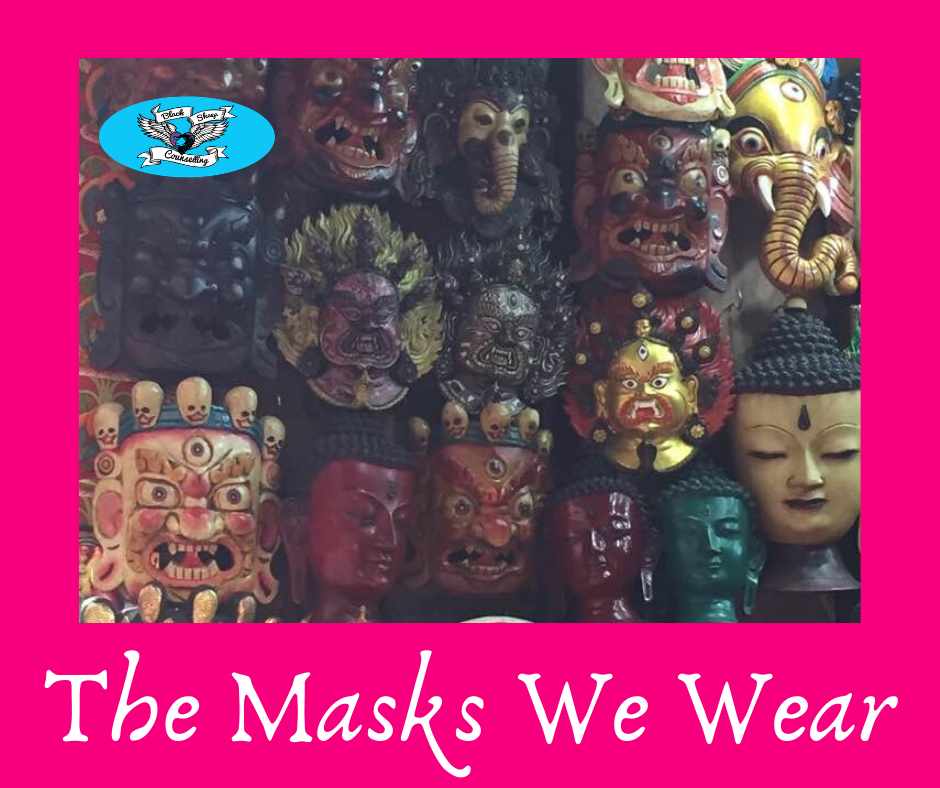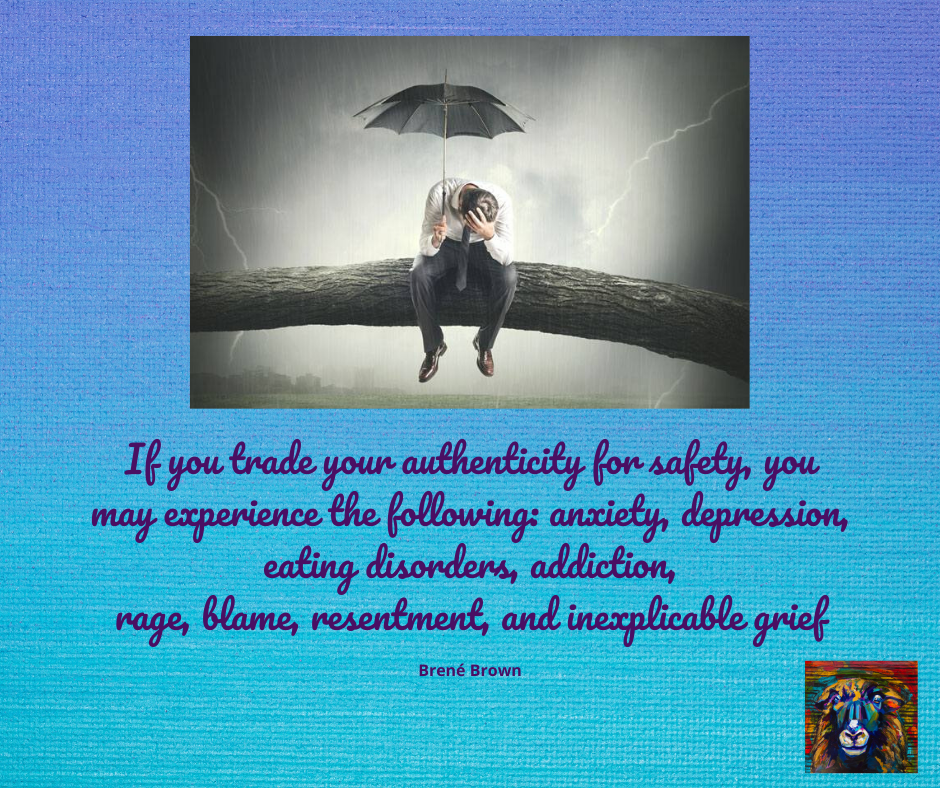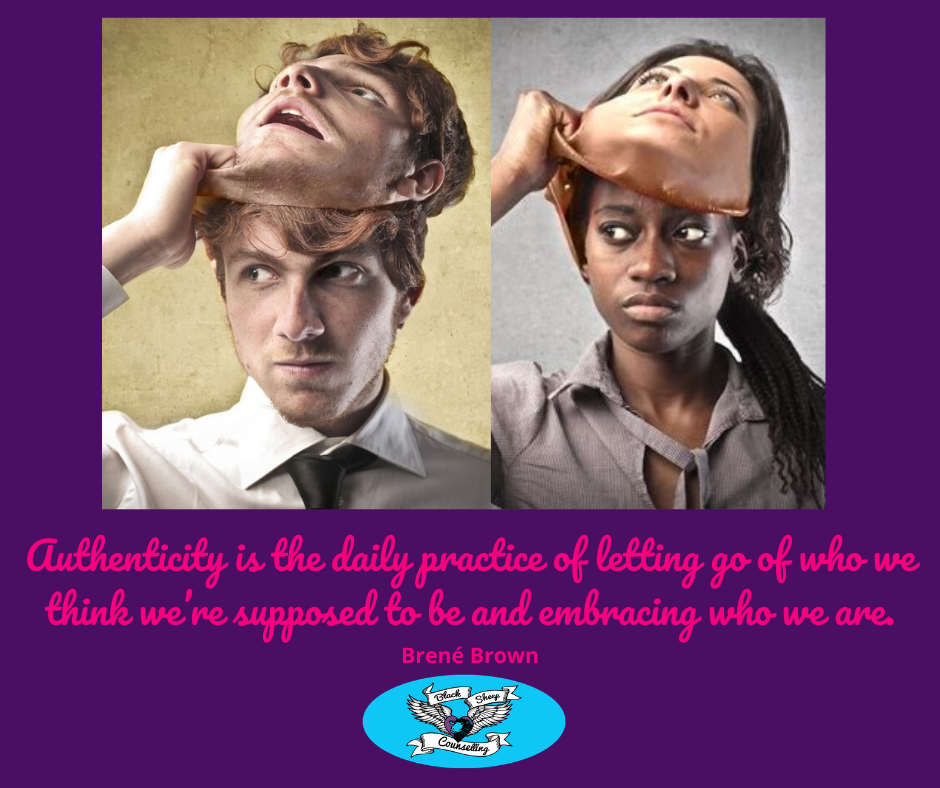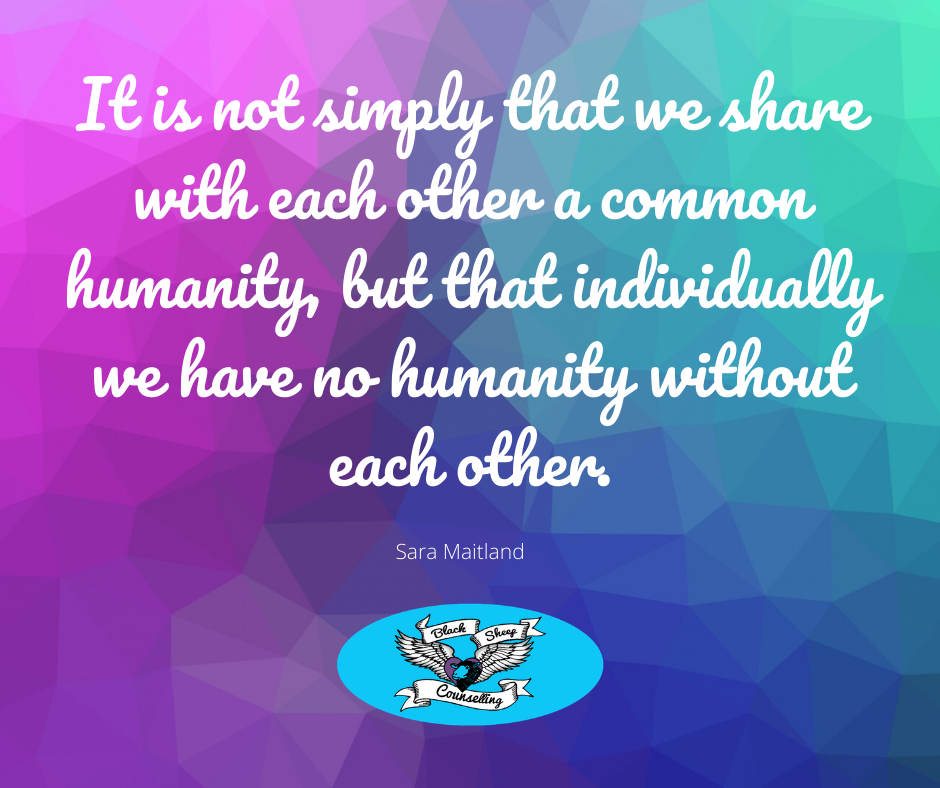
Apart from the fun of Hallowe’en and Masquerade, people generally wear masks for protective reasons. Sometimes we mask our emotions because it does not genuinely safe to share with who we are with – we are avoiding feeling judged or being “fixed”. Sometimes masking can occur because we don’t want to burden others. We may mask who we are out of insecurity or denying to others and ourselves some uncomfortable truths….Maybe we doubt our parenting skills, or feel unsure about our power, or we are cheating on a partner or our taxes, or we may be struggling with mental health, addiction or chronic health issues, or are in abusive relationships, or we’ve incurred a lot debt, or we are not who our families desired us to be.…the list goes on.
Our emotions are energy… and energy needs to be moved – we need to let it out in a responsible way. When emotions are denied, suppressed, or ignored, they form the basis of dis-ease…we get fatigued, sick, ill. We are not just out of sorts with others, we are disconnected from Self – something I consider the biggest tragedy of all.
What is the antidote to the discomfort incurred by mask-wearing?
In Brene Brown’s famous TedTalk entitled The Power of Vulnerability, she shares how her research illuminated that being VULNERABLE is the most courageous thing we can do: not faking it, not masking it, not being phonily optimistic.
It can take courage to show up authentically in a social-media-photo-shopped society. But here’s what I know: there are great costs to our entire well-being when our actions and behaviours do not align with our inner truth. Genuine connection is impeded (interestingly, Brown discovered in her research that the opposite of belonging is fitting in…read that again).

Genuine belonging is created by embracing your authentic Self, not the edited, Instagram-ready version. Have you ever found yourself in an environment surrounded by people and felt lonelier than you have being truly alone? I sure have. First off: those probably aren’t your people. Secondarily: have faith that by owning your authentic Self you are cultivating opportunities to attract people who genuinely like you for you (TRUE belonging).
Being authentic begins with an exploration of getting to know ourselves: our value and belief systems, our personal ethics, our traits, behaviours, triggers, needs, goals, motives. It’s shining a light on our shadow parts with curiosity and compassion and embracing our vulnerability.

Bonds form with others through vulnerability – this is how deep connections take root. It is also important to forge deepened connection with Self. What do you value? What are some of your unique-to-you quirks? What do you believe in your heart to be true? What wounding do you carry? What life experiences have you gone through that have greatly impacted you? What wisdom do you possess (for the record: “wisdom” is a fancy term for healed pain).
Explore the fascinating subject matter of YOU. Identify some descriptors of who you are (not what you do). Try to get creative with this project to widen your lens of perspective (you could try journaling, collaging, paint, compile words, quotes, song lyrics, images that resonate with you). You will have a felt sense of your authenticity by connecting with your thoughts, values, beliefs, and actions that originate deep inside you, and are resistant to “people-pleasing” the descriptors you identify.
We are attracted to authentic people. I believe this is because we can feel a connection with our shared humanity. The pain we feel in difficult times is the pain others feel in difficult times. Suffering is universal. I am fortunate as a counsellor to spend my time holding space for others and playing witness to vulnerable personal process. Engaging in this heart-centered work has made me someone with a very low tolerance for phoniness in my personal life….and that is okay. I’ll take the real deal any day….no phony optimism needed with me.
We are one, after all, you and I, together we suffer, together exist and forever will recreate one another.
Pierre Teilhard de Chardin


